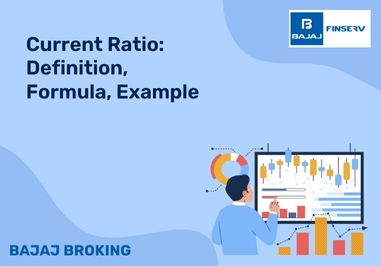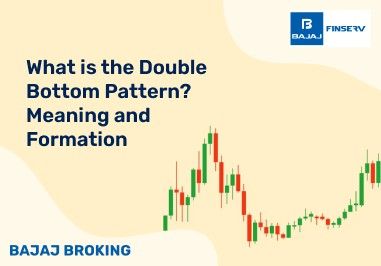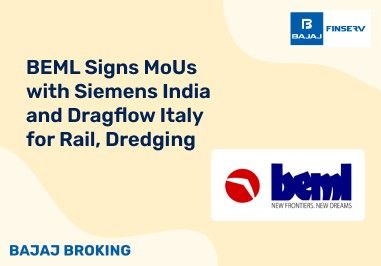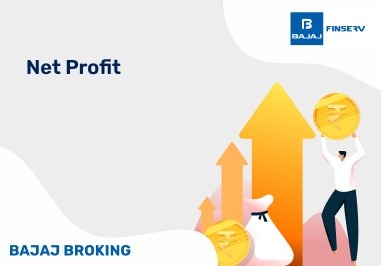Enterprise value is one of the most important financial indicators for a company. It indicates the overall value of a company. Enterprise value is the least one has to pay to acquire a company. Hence, it is extremely important in events related to mergers and acquisitions (M&A).
As the M&A activity has picked up in India, enterprise value has become a popular concept among investors. It is calculated by considering the value of a company’s equity shares, preference shares, total debt, and cash & cash equivalents. Read this blog, as it explains what enterprise value is in great detail.
Understanding Enterprise Value
Enterprise value is a metric for the total value of a company. If someone wants to acquire a company, he will have to pay at least its enterprise value to acquire it. But, what exactly is enterprise value?
Enterprise value is the market value of both the shares and debt components of a company. Let us understand it this way. Suppose you want to acquire a company. In simple words, you will be acquiring its assets. But, how were the assets funded? They were bought using funds provided by equity holders, preference holders, and debt holders.
Hence, if you want to acquire a company, you need to at least pay its equity, preference, and debt holders. Therefore, a firm’s enterprise value is the total of the market value of its shares and debt components.
Formula of Enterprise Value
You can calculate a firm’s enterprise value by using the following formula:
Enterprise Value = Market Capitalization + Total Debt – Cash and Cash Equivalents
Here, market capitalisation is equal to the current market price of a company multiplied by its number of outstanding shares. Total debt includes both long-term and short-term debt. The cash and cash equivalents held by a company can be used to pay its long and short-term debt. Hence, they need to be deducted to calculate the enterprise value.
Components of Enterprise Value
If you want to calculate the enterprise value of a company, please keep in mind the following most important components:
Equity value: You can calculate a company's equity value by considering its fully-diluted outstanding shares and multiplying them with its current stock price. In fully-diluted outstanding shares, we include warrants, in-the-money options, and convertible securities, apart from basic outstanding shares.
Preferred stock: Preferred stocks share some characteristics with both equity and debt. They pay a fixed amount of dividends, which is a bit like paying interest on debt. Like equity shareholders, preference shareholders are the owners of a company. However, in the event of an acquisition, preference shares are treated more like debt because a fixed dividend has to be paid for them. Besides, an acquirer has to pay preference shareholders first and then he can pay equity shareholders.
Total debt: Debt means short- and long-term loans taken by a company for which interest needs to be paid. Besides, the principal of such loans also needs to be paid after a period of time. An acquirer has to pay an enterprise’s loans before it settles the claims of its preference and equity shareholders. Cash and cash equivalents are usually deducted from total debt because they can be used to pay off the total debt of a company. It is possible that the market value of a firm’s debt is not known. In that case, we should consider its book value.
Non-controlling interest (minority interest): The portion of a subsidiary that is not owned by its parent company is called noncontrolling interest. A parent company owns more than 50% but less than 100% stake in a subsidiary. While reporting financial results, the financial data of a subsidiary are consolidated with that of its parent company. We include minority interest while calculating a firm's enterprise value because the financial data of a subsidiary (revenues, expenses, & cash flows) are included in the financial statements of its parent company.
Cash and cash equivalents: Most companies have some cash on their books. Apart from that, they have cash equivalents, which include commercial paper, short-term investments, and marketable securities. These are highly liquid assets, which an acquirer can utilise to pay the obligations of a company. Hence, they are deducted while calculating the enterprise value.
Example of Enterprise Value
Let us take an example of enterprise value to illustrate this concept better. Suppose a company called “XYZ” has 10 lakhs outstanding shares and the current market price of its share is ₹50. Hence, its market capitalization is ₹5 crores (10 lakhs * 50). Suppose the book value of its debt is ₹2 crores and it has ₹1 crore worth of cash and cash equivalents.
Now, we can employ this formula to calculate its enterprise value.
Enterprise Value = Market Capitalization + Total Debt – Cash and Cash Equivalents
Enterprise Value = ₹5 crores + ₹2 crores - ₹1 crore = ₹6 crores
Limitations of Enterprise Value
The main limitations of enterprise value are discussed below:
a) Can fluctuate a lot: The calculation of the equity component of enterprise value depends upon the current market price of a stock, which can fluctuate a lot on a day-to-day basis. In fact, it can fluctuate significantly within a day as well. Hence, a fluctuating stock price can make it difficult to understand what the true enterprise value of a company is.
b) Does not take off-balance sheet items into account: Enterprise value does not consider a company’s off-balance sheet items, which is its huge limitation. Such items can include leases and contingent liabilities, which can affect a firm’s value. If such items are not included, it may distort the enterprise value of a firm.
c) Complexity in calculation: Calculating the enterprise value of a company can be quite difficult, particularly when it has a complex capital structure, many subsidiaries, or complex debt obligations. For such companies, it requires a lot of skill and assumptions to calculate their enterprise value.
Enterprise value vs. Market cap
The following table captures the most important differences between enterprise value and market capitalisation:
Criteria
| Enterprise Value
| Market Cap
|
Meaning
| Enterprise value means the total value of a company. It takes into consideration a company’s equity stock, preferred stock, debt, and cash & cash equivalents.
| Market cap means the market value of the outstanding shares of a company. It does not include a firm’s debt or cash & cash equivalents.
|
Emphasis on financial structure
| Enterprise value focuses on a company’s financial structure, as it considers both its equity and debt value.
| Market cap does not reflect a company’s financial structure, as it only shows the market value of shares and not the debt.
|
Relevance in mergers and acquisitions (M&A)
| When someone tries to acquire a company or merge it with another firm, enterprise value is extremely important because such events require the claims of equity holders, preference holders, and debt holders to be settled.
| Market cap is relevant in M&A events; however, it is not as relevant as enterprise value. This is because market cap shows the value of only outstanding shares and not that of other elements in a firm’s capital structure.
|
Enterprise value vs. P/E ratio
The main differences between Enterprise Value and P/E (Price-to-Earnings) Ratio are explained in the table below:
Criteria
| Enterprise Value
| P/E Ratio
|
What does it show?
| It shows the total value of a company by considering the value of its equity stock, preferred stock, debt, cash & cash equivalents.
| It shows how much an investor will pay to buy a company’s share for every rupee it generates in net profit. It considers only the shares of a company and does not consider its debt and cash & cash equivalents.
|
Relevance in mergers and acquisitions (M&A)
| An enterprise value is one of the most important metrics in M&A events. This is because it considers the claims of equity holders, preference holders, and debt holders.
| P/E ratio can be used in M&A events to see how expensive or cheap a company’s stock is vis-à-vis its competitors. However, its relevance in such events is much lesser compared to that of enterprise value.
|
Interpretation
| If a company has a lower enterprise value compared to its closest competitors, it may indicate that it is undervalued.
| A lower than competitors’ P/E could show that a company is undervalued.
|
Additional Read: Debt-to-Equity (D/E) Ratio
Conclusion
If you are about to open a demat account, you must learn the concept of enterprise value. While this concept is used mostly in M&A events, it can help even retail investors develop a holistic understanding of a company’s overall value. This is because enterprise value considers all those who have a claim on a company’s assets, such as equity holders, preference holders, and debt holders.
Other valuation metrics, like Market Cap and P/E, do not consider the value of all those who have a claim on a firm’s assets. That said, it can be difficult to calculate a firm’s enterprise value. Hence, you should first improve your understanding of this concept and only then start using it.
Disclaimer: Investments in the securities market are subject to market risk, read all related documents carefully before investing.
This content is for educational purposes only. Securities quoted are exemplary and not recommendatory.
For All Disclaimers Click Here: https://bit.ly/3Tcsfuc












